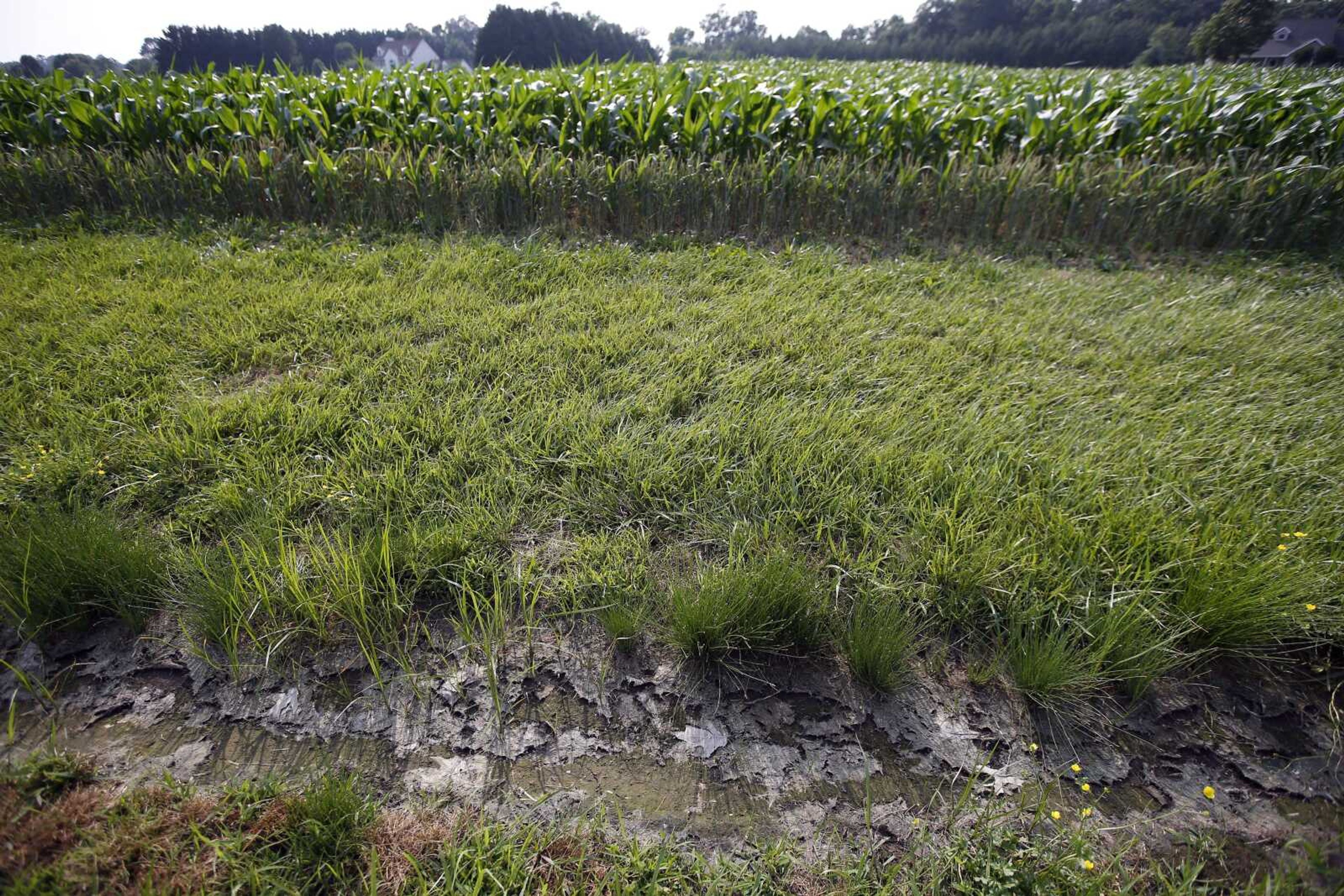Judge rules Obama administration water rule should be halted
BISMARCK, N.D. -- A federal judge in North Dakota on Thursday blocked a new Obama administration rule that would give the federal government jurisdiction over some smaller waterways just hours before it was set to go into effect. U.S. District Judge Ralph Erickson in Fargo issued a temporary injunction requested by North Dakota and 12 other states halting the U.S. ...
BISMARCK, N.D. -- A federal judge in North Dakota on Thursday blocked a new Obama administration rule that would give the federal government jurisdiction over some smaller waterways just hours before it was set to go into effect.
U.S. District Judge Ralph Erickson in Fargo issued a temporary injunction requested by North Dakota and 12 other states halting the U.S. Environmental Protection Agency and U.S. Army Corps of Engineers from regulating some small streams, tributaries and wetlands under the Clean Water Act. The rule, which has prompted fierce criticism from farmers, among others, was scheduled to take effect today.
North Dakota Attorney General Wayne Stenehjem, who filed the injunction request, said his reading of the ruling was it applied to all 50 states, not just the 13 that sued. But the EPA said in a statement it applied only to the 13, and the rule would be enforced beginning today in all other states.
The 13 states exempted for now are Alaska, Arizona, Arkansas, Colorado, Idaho, Missouri, Montana, Nebraska, Nevada, New Mexico, North Dakota, South Dakota and Wyoming.
Erickson, who was appointed by President George W. Bush in 2003, said the EPA had exceeded its authority in issuing the regulation.
"The risk of irreparable harm to the states is both imminent and likely," Erickson said in granting the request from the 13 states. The judge said among other things, the rule would require "jurisdictional studies" of every proposed natural gas, oil or water pipeline project in North Dakota, a state which is at the center of an energy exploration boom.
"While the exact amount of land that would be subject to the increase is hotly disputed, the agencies admit to an increase in control over those traditional state-regulated waters of between 2.84 to 4.65 percent," the judge wrote.
The 13 states say the regulation is unnecessary and infringes on their sovereignty. The federal government says the new rule clarifies ambiguity in the law and makes it easier for the states to manage some waterways.
"This is a victory in the first skirmish, but it is only the first," North Dakota's Stenehjem said in a statement. "There is much more to do to prevent this widely unpopular rule from ever taking effect."
The agriculture industry has been particularly concerned about the regulation, saying it could apply to drainage ditches on farmland. The EPA and Army Corps said the only ditches that would be covered under the rule are those that look, act and function like tributaries and carry pollution downstream. A tributary would be regulated if it shows evidence of flowing water such as a bank or high-water mark, the EPA said.
The new rules would have forced landowners to get a permit if they took steps that would pollute or destroy the regulated waters connected to larger bodies of water downstream.
The judge said the rule appears to be too broad in some cases. He said the definition of tributary, for example, could include many waters that are unlikely to have a significant connection to larger waters downstream. He also said the rules are "arbitrary and capricious" and would cover some waters that are "remote and intermittent."
For example, the judge said Wyoming would have to bear the cost of issuing permits and has no way of avoiding the increased expenses under the regulation.
State officials in North Dakota said the new rule will cost the state millions of dollars and take away from more important programs.
Stenehjem -- along with attorneys general and officials from 30 other states -- wrote last month to the EPA and the Army Corps asking the law be postponed at least nine months. Lawyers for the states said they heard nothing back from the government, so they filed a request for the preliminary injunction.
The federal government said the request for an injunction was better suited to be heard by the 6th U.S. Circuit Court of Appeals than by a federal judge, but Erickson rejected that notion.
Associated Press writers Dave Kolpack in Fargo and Mary Clare Jalonick in Washington contributed to this story.
Connect with the Southeast Missourian Newsroom:
For corrections to this story or other insights for the editor, click here. To submit a letter to the editor, click here. To learn about the Southeast Missourian’s AI Policy, click here.








